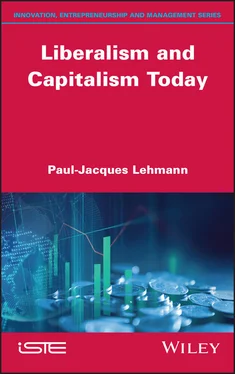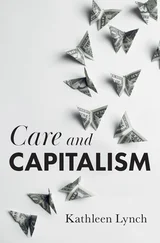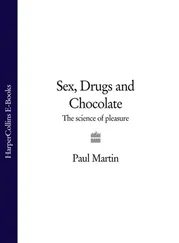1 Cover
2 Title Page
3 Copyright First published 2021 in Great Britain and the United States by ISTE Ltd and John Wiley & Sons, Inc. Apart from any fair dealing for the purposes of research or private study, or criticism or review, as permitted under the Copyright, Designs and Patents Act 1988, this publication may only be reproduced, stored or transmitted, in any form or by any means, with the prior permission in writing of the publishers, or in the case of reprographic reproduction in accordance with the terms and licenses issued by the CLA. Enquiries concerning reproduction outside these terms should be sent to the publishers at the undermentioned address: ISTE Ltd 27-37 St George’s Road London SW19 4EU UK www.iste.co.uk John Wiley & Sons, Inc. 111 River Street Hoboken, NJ 07030 USA www.wiley.com © ISTE Ltd 2021 The rights of Paul-Jacques Lehmann to be identified as the author of this work have been asserted by him in accordance with the Copyright, Designs and Patents Act 1988. Library of Congress Control Number: 2021934587 British Library Cataloguing-in-Publication Data A CIP record for this book is available from the British Library ISBN 978-1-78630-689-0
4 Introduction
5 PART 1: The Conditions in Which Liberalism and Capitalism Appeared PART 1 The Conditions in Which Liberalism and Capitalism Appeared
1 Political and Legal Conditions 1 Political and Legal Conditions There can be no capitalism without freedom. The appearance of liberalism was therefore an essential condition for the emergence of this economic system. In France, this was part of the philosophy of the Enlightenment, which extended from the death of Louis XIV to the Revolution of 1789 and would come to gradually impose itself, first, in the minds of the intellectuals of the time, and subsequently in the minds of the French people as a whole. The word liberalism initially had a purely political meaning, as the leaders of a nation were forced to promote the freedom and equality of individuals owing to the return of a political regime that had proved its worth many centuries earlier but had been forgotten in many countries: democracy. At a legal level, liberalism extends the right of ownership from the right to just land to the holding of all production assets. This was an essential condition for economic growth in the form of savings and thus for the formation of productive capital. This legal evolution was the result of a new social class, the bourgeoisie, composed of entrepreneurs whose domination began to impose itself on the whole of society. However, this domination came up against the appearance of another source of domination: that of state bureaucracy.
1.1. Liberalism and democracy: new eldorados of political thought and political life 1.1. Liberalism and democracy: new eldorados of political thought and political life Liberalism brought the superiority of the individual to the fore. Prior to that period, the individual did not constitute an element of society to which philosophers gave prominence. Capitalism would develop from this new way of thinking, even though liberalism and capitalism should not be confused, especially with regard to the role of the state and their respective positions vis-à-vis monopolies. Liberalism is also at the origin of the advent of democracy – a guarantee of formal equality – whereas an aristocratic society can only generate inequality. In such a situation, the more equality extends, the more the demand for equality widens and the more inequalities appear unacceptable. This change in political structure has completely different economic consequences.
1.2. The right of ownership as a necessary condition for savings and capital formation 1.2. The right of ownership as a necessary condition for savings and capital formation The rights underpinning liberalism existed long before the passing of the laws that would simply ratify the social pact by a social contract. The meeting of the general philosophical principles of liberalism that we have just defined, and its legal implementation, can only take place in a democratic political system. Liberty, equality, individual interest and responsibility are only obtained and implemented within a strictly appropriate legal framework with control guaranteed by the public authorities. In particular, these principles require that the right of ownership exist and be respected, here, too, materialized by the free signing of contracts. Indeed, the right of private property is not only the precondition of capitalism, but also its cornerstone. Thus, Friedrich Hayek goes so far as to say that where there is no property, there is no justice. He considers that the right to property must be established so that all members of a community can own property, freely dispose of it and be protected against its usurpation. In this regard, it is worth recalling that in the Declaration of the Rights of Man and of the Citizen, private property is recognized as an inalienable right that protects the individual from their neighbors as well as from political power. All contracts must be governed by the regime of freedom. Thus, the first example of private property, land ownership, must be extended to all contracts in which property is likely to encourage savings.
1.3. The advent of the bourgeoisie 1.3. The advent of the bourgeoisie At the sociological level, it was the urban bourgeoisie who, from the Middle Ages onwards, because of their power, both economic and political, were at the origin of modern capitalism. Previously, in spite of the hold of the military and the nobility in Antiquity, no social class had been capable, neither politically nor economically, of imposing this economic structure.
1.4. The nascent authority of state bureaucracy 1.4. The nascent authority of state bureaucracy Weber was very interested in the concept of domination, which is one of the characteristics of any society. Ever since they were formed into groups, whatever their nature, people have been constantly tearing each other apart. In any human community, domination reflects the existence of the roles of the dominant and of the dominated. Weber explained that the dominated accept the orders of the dominant because of the consideration of the legitimacy of the latter. “The most decisive factor that determines obedience is the belief in the legitimacy of dominance”. The Austrian author presented three forms of legitimate domination, which each stem from three causes. The first is charismatic: one follows the personality of a leader whose exceptional qualities are admired and who is obeyed according to the prestige they exercise over other people who show devotion to them, sometimes even to the point of sacrifice. The second is traditional: one obeys injunctions that one is accustomed to accept. The third is traditional-legal, regulatory and rational: one follows impersonal hierarchical orders. Weber’s great contribution to this question was to analyze the transition of societies from an organization based on traditional legitimacy to societies where authority is imposed either by the influence of the charisma of individuals who exercise power, or through the exercise of reason which becomes the driving force of individual and collective action, by the process of rationalization of social activities, with people and societies being within the framework of this rationality, guided either by objectives or by values. For a long time, domination was patrimonial. In modern capitalism, it was legal-rational domination with perfectly defined codes and rules that would impose itself in the hands of the state, allowing it to hold the monopoly of legitimate constraint under the influence of the bureaucracy whose meaning is difficult to define. Indeed, for many liberals, bureaucracy corresponds to the socialist ideal of socialism, whereas in reality, this notion seems to mean an attack on individual initiative. In any case, the people in charge of state bureaucracy saw the nature of their activities change. It must be determined whether the advantages of these new activities outweigh their disadvantages.
2 Economic and Sociological Conditions
2.1. Trade and industry: competitors of agriculture and the craft industry
2.2. The dangers of industrialization
2.3. The decisive influence of the Protestant religion on economic rationalization
2.4. The role of money and financial markets
Читать дальше












